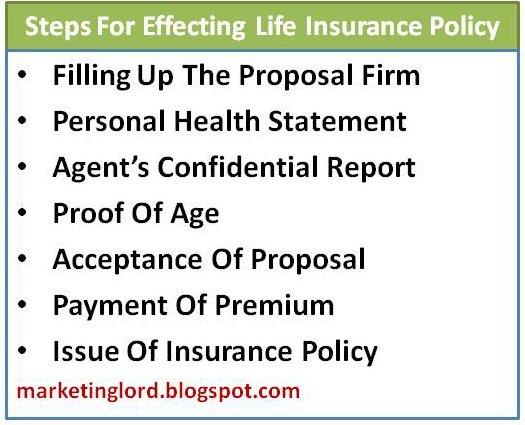You’ve had term life insurance for the past 10 or 20 years. It’s been an inexpensive way to have peace of mind, but the policy is coming to an end. What should you do when your term life insurance expires?
For instance, not all term life policies allow you to convert to permanent life. You might not be able to renew your term life policy either. Or your health might make buying a new affordable term life policy difficult if not impossible.
Term life offers protection for a limited amount of time, such as 10, 20 or 30 years, for cheaper premiums than permanent. Permanent life, as the name suggests, lasts your whole life.
Most plans let you convert term life to permanent life. You’re able to convert the plan without going through a medical exam. But you’ll need to convert before you reach a certain age, such as 70 or 75, depending on your insurer.
Todd Silverhart, corporate vice president and director of LIMRA Market Research, said you shouldn’t wait until the policy is about to expire to determine your need.
KEY TAKEAWAYS
- You should renew your insurance policy, if you are in poor health, you will get coverage and rates will be higher.
- Buying a new term life policy might be wise as long as you are healthy and still young.
- Most policies you buy will let you convert your term insurance to permanent life insurance.
- If you’ve saved enough to give to your family at the time of your death, you can decide to let go of your life insurance policy.
What should you think about?
“The first question they should ask is whether they still need the coverage,” Silverhart said.
Insure.com’s Life Insurance Advisor can help you answer those types of questions.
Four options if your term life is expiring
Here are four options if your term life policy is expiring:
1. Renew the policy
Joshua Hubbard, an insurance agent at Allstate in Merrimack, NH, said renewal is a smart choice for someone in poor health. You’ll still be guaranteed coverage. However, you’ll likely pay much higher rates.
Life insurance companies base rates on your risk. Being 20 years older than when you bought a policy means you’re that much closer to the end of the life. That’s a depressing thought, but it’s what life insurance companies think about when deciding on rates.
The closer they think they’ll have to pay out, the higher the premiums.
If you outlive your term life policy, you usually don’t get any money. There is an exception. Return of premium (ROP) term life gives you back the premiums. The downside is you’ll pay more than a regular term life policy. If ROP interests you, compare policies with and without that rider to see whether the extra cost is worth it.
2. Buy a new policy
Buying a new term life policy could be a wise decision if you’re in good health and still young.
This option will likely cost you less than converting to a permanent life policy if you’re under 70. However, it does require a medical exam and the insurer will review your medical history to make sure you’re a good risk.
You’ll want to figure out how much your loved ones will need. You may have done this exercise 20 years ago, but life changes. You may now have children or they’ve moved out. You may have a mortgage or you’re paid it off.
And, read what policyholders have to say about their experience with their insurer, and choose from among the best life insurance companies for customer service, value and price.
You may decide to keep a term life policy but go with another company. Shopping around might save you money, but remember that you’re older than when you first bought your term life policy, so you’ll likely pay higher premiums regardless.
3. Convert to permanent life
Most policies allow you to convert term to perm. It’s a good idea to add that option when buying a term life policy.
Permanent life insurance is the umbrella name used for policies like whole life, universal life and variable universal life.
Term life is a cheaper plan, so it’s a popular choice for people with a limited budget. These might be an excellent choice when you’re 30, but you might want something a little more permanent if you’re 40 or 50.
By the time you’re 40 or 50, you’ll also likely have better finances and a more stable job.
If you convert to permanent life insurance, you will likely pay much higher premiums.
A benefit of permanent life is that it lets you build up cash value in the account. That means you can withdraw money from the policy. Doing so will leave your loved ones with less money when you die, so you want to use caution when tapping into insurance policies.
Hubbard said it’s a good idea to look ahead rather than wait for your term life policy to expire. If you wait, a permanent life policy will be much more expensive than what you paid for term life.
How much more you will pay for permanent life depends on the person and company.
You probably won’t have to go through the insurability process again if you convert to permanent life.
“But it will be more expensive since you are transferring from term to whole life. It will be rated at your current age in most cases. But if something in your health changes and you have trouble getting a new policy because of a new health condition, you can convert your term policy and not have to be worried about being denied,” Hubbard said.
4. Drop life insurance
OK, it’s likely not a wise decision, but we have to present this option. You could decide to drop life insurance.
Maybe you’ve saved enough of a nest egg that leaves your family with a huge payout at the time of your death. In that case, you might decide to go without life insurance. However, give it serious thought to make sure your loved ones will be OK financially if the unthinkable happens to you.
Find the right life insurance for you
Silverhart said policyholders should check policies with their agents and insurers to make sure they understand the policy’s provisions. Don’t wait until your policy is running out. Spend time figuring out your policy and your options well before then.
“Policyowners must re-assess their current need for death coverage. That assessment is critical in order to be able to determine which product type (or option with current policy) will best meet their needs moving forward,” Silverhart said.
An important part of life insurance is price. Hubbard said people can usually find coverage they can afford when buying life insurance.
“There is a package for everybody and nobody ever wished they bought less life insurance for their family if they became terminally ill. It is something people do not like to discuss, but it is so important to have that discussion with your agent,” Hubbard said.





